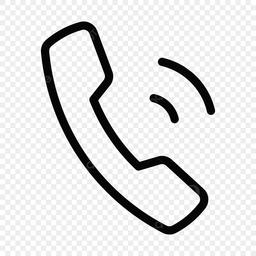Baling wire gauge guide
Gauge is a measurement that originated within the manufacturing process, and refers to the thickness or diameter of a given wire. Wire gauge is typically measured using the American Wire Gauge system, and serves as the standard way to denote wire size in North America.
Gauge inversely relates to wire diameter, meaning a lower gauge corresponds to a thicker wire diameter. This is because gauge refers to the number of times a wire has been drawn and stretched through progressively smaller dies during manufacturing. A 12 gauge wire, for example, has been drawn through twelve dies, decreasing its diameter each time.
Wire gauge is an important consideration for effective baling operations. Wire gauge often determines tensile strength and load strength, and ultimately how well a wire can handle the pressure and weight of the materials being baled.
How to choose wire gauge size
Wire gauge choice is influenced by factors such as the type of materials being baled (cardboard, plastic, metal), the type of baling equipment used, and the size and density of bales.
To find the best wire for your baler, it is important to consult your baling machine manufacturer. Here is a list of wire gauges commonly used in different types of balers for baling recyclables:
Vertical balers
- Cardboard: 12–14 gauge
- Newspaper: 12–13 gauge
- Plastic shrink wrap: 13–14 gauge
- Other plastics: 12–13 gauge
- Foam: 11 gauge
Horizontal balers
- Cardboard: 11–13 gauge
- Newspaper: 12–13 gauge
- Plastic shrink wrap: 11–12 gauge
- Other plastics: 11–12 gauge
- Foam: 11 gauge
Automatic baling machines
- Cardboard: 10–12 gauge
- Newspaper: 10–12 gauge
- Plastic shrink wrap: 10–12 gauge
- Other plastics: 10–12 gauge
- Foam: 10–11 gauge
Tensile strength and load strength of our products
Tensile strength and load strength are important to consider when choosing a wire type and gauge. The following chart displays the tensile strength and load strength ranges for the products we offer.
|
Product | |||||||
|
Tensile strength |
75,000–95,000 psi (517.10–655 MPa) |
145,000–175,000 psi (999.74–1206.58 MPa) |
65,000–78,000 psi (448.21–537.79 MPa) |
80,000–95,000 psi (551.58–655 MPa) |
80,000–95,000 psi (551.58–655 MPa) |
220,000 psi (1516.85 MPa) |
220,000 psi (1516.85 MPa) |
|
Load strength |
402–1,832 lbs |
1,256–1,832 lbs |
932–1,118 lbs |
402–1,074 lbs |
402–1,074 lbs |
1,060–2,150 lbs |
1,015–2,040 lbs |
Baling wire gauge guide chart
Here’s a chart that displays the wire gauges and their diameters for our high-quality baling wire products.
|
Gauge |
Regular galvanized wire (inches) |
Hi-tensile galvanized wire (inches) |
Black annealed wire (inches) |
Single loop bale ties (inches) |
Double loop bale ties (inches) |
|
9 |
NA |
NA |
NA |
NA |
0.148 |
|
10 |
NA |
NA |
0.135 |
NA |
0.135 |
|
11 |
0.117–0.119 |
0.119–0.121 |
0.120 |
0.117–0.119 |
0.120 |
|
12 |
0.102–0.104 |
0.104–0.106 |
0.105 |
0.102–0.104 |
0.105 |
|
12.5 |
NA |
NA |
NA |
NA |
0.099 |
|
13 |
0.088–0.090 |
NA |
NA |
0.088–0.090 |
NA |
|
14 |
0.077–0.079 |
NA |
NA |
0.077–0.079 |
NA |
Baling wire products we offer
Baling Wire Direct sells the following high-quality baling wire products.
Baling Wire FAQ
Didn't find your answer?
Our team is just an email away and ready to answer your questions


